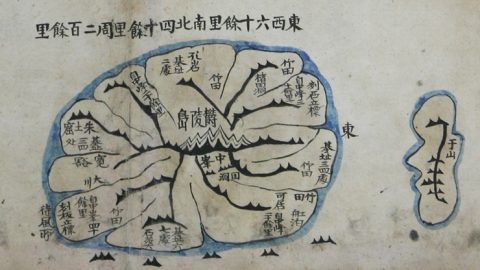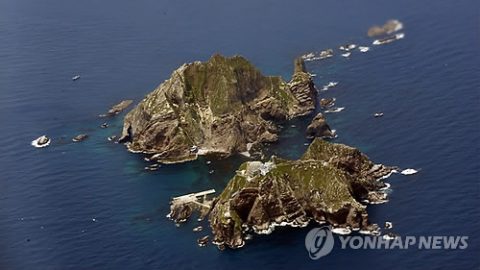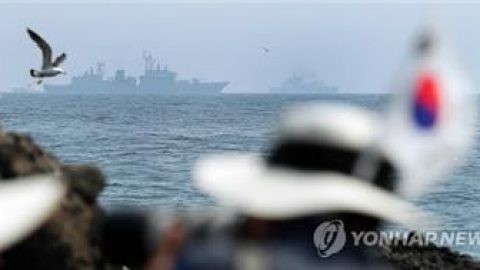2014-02-21
A high-stakes struggle between Asian powers over territory and resources in the Sea of Japan has opened a new front in unexpected locations: American state legislatures. Now, the centuries-old feud between South Korea and Japan will soon impact some schoolchildren in the United States.
Korean American activists have pushed legislation in three states that would require new school textbooks to note that the Sea of Japan is also called the East Sea, the Korean name for the hotly disputed body of water.
Earlier this month, the Virginia House of Delegates passed legislation that would require textbooks to include both names by a wide margin. Gov. Terry McAuliffe (D), who said during his 2013 campaign that he supported the measure, is likely to sign it once it reaches his desk.
Last week, five New Jersey legislators who represent a heavily Korean constituency in Bergen County introduced a similar measure. And three bills in the New York legislature would require the same dual naming conventions in new textbooks in the Empire State.
The body of water has been known internationally as the Sea of Japan since the 17th century, and most international bodies, including the United Nations and the International Hydrographic Organization, use that name today. So does the U.S. State Department.
But for the past two decades, South Korea and North Korea have lodged protests with international organizations seeking to have their name included. South Korea wants to see the East Sea included in international naming conventions, while North Korea wants to call it the East Sea of Korea.
Naming the sea is a sensitive subject because the two countries — America’s closest allies in Asia — are increasingly feuding over uninhabited islands and the huge oil and gas reserves under the sea floor. The two countries and China are also moving to stake claims to islands in the East China Sea.
Wading into local American politics is a new tactic, said Scott Snyder, director of the Program on U.S.-Korea Policy at the Council on Foreign Relations.
“As tensions with Japan over historical issues … have risen in recent years, and to the extent that individuals associated with the current administration in Japan have made statements that challenge or deny history, this has fed Korean American activism on the naming issue,” Snyder said in an e-mail.
There’s little evidence that the government of the Republic of Korea — South Korea’s formal name — has pushed Korean American activists to lobby their local legislators. But Japan’s consul general in New York, Sumio Kusaka, has sent letters to state legislators urging them to vote against the name change, arguing that the State Department has already settled on the Sea of Japan. Yoshihide Suga, Japan’s chief cabinet secretary, called the New Jersey legislation “extremely regrettable.”
Nationalist undercurrents are running through both sides as anti-Korean sentiment rises in Japan and anti-Japanese sentiment builds in Korea. In recent months, top officials in both countries have taken steps to anger the other: In December, Japanese Prime Minister Shinzo Abe visited a controversial shrine that includes convicted war criminals, some of whom occupied South Korea. South Korea and China both condemned the visit.
Last month, South Korea worked with China to open a memorial to Ahn Jung-Geun, a Korean independence activist who assassinated Hirobumi Ito, Japan’s first prime minister who later oversaw the occupation of China, in 1909. The memorial opened in January at the train station in Harbin, the site where Ahn shot Ito. Japan, which views Ahn as a terrorist, called the monument “extremely regrettable.”
The State Department isn’t going to wade into local politics, spokeswoman Jen Psaki said in a statement.
“The State Department does not get involved in state and local government discussions on text books. The U.S. Government uses names decided by the U.S. Board on Geographic Names. The U.S. Board on Geographic Names’ standard name for that body of water is the Sea of Japan,” Psaki said. “We understand that the Republic of Korea uses a different term. Per U.S. policy, we use only one name to refer to all high seas features. This is a long-standing U.S. policy that we apply all around the globe.”
The ill will between Japan and South Korea extends back centuries, adding to the current feud, Snyder said.
“The Sea of Japan gained currency and was registered as the official name of this body of water during the time that Japan had colonized Korea, so Koreans (and by extension, Korean Americans) are pushing their traditional designation of East Sea as a corrective to this colonial legacy,” Snyder said.
Both South Korea and Japan have conducted surveys of antiquarian maps to demonstrate their preferred name has historical precedent. Not surprisingly, the surveys have come to wildly different conclusions.
source : Washingtonpost
http://www.washingtonpost.com/blogs/govbeat/wp/2014/02/21/korean-americans-push-to-rename-sea-of-japan-in-state-legislatures/



